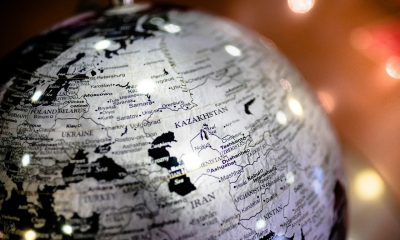Tội phạm
MEP xác nhận danh sách cấm của Ủy ban về các quốc gia có nguy cơ #MoneyLaundering

 Despite fierce opposition, Tunisia has been added to the European blacklist of third countries thought to be at “high risk” of money laundering and terrorist financing.
Despite fierce opposition, Tunisia has been added to the European blacklist of third countries thought to be at “high risk” of money laundering and terrorist financing.
Despite intense efforts by some MEPs, they failed to achieve the 376-vote absolute majority needed to reject the inclusion of Tunisia, Sri Lanka, and Trinidad and Tobago to the European Commission’s list of non-EU countries considered to have strategic deficiencies in their anti-money laundering and terrorism financing regimes.
The vote on Wednesday (7 February) reflected the split in Parliament over the issue, with 357 votes in support of the motion, to 283 votes against, and 26 abstentions.
MEPs who tabled the motion focused their opposition on the inclusion of Tunisia. They believe the addition of the North African country is undeserved; that it is a burgeoning democracy in need of support and that the listing fails to recognise the recent steps it has taken to strengthen its financial system against criminal activity. The other two countries were included in the same delegated act.
Commission obligations under the AMLD
As part of its obligations under the EU’s Anti-Money Laundering Directive, the European Commission is periodically obliged to draw up a list of “high-risk third countries”.
Parliament has veto power over the blacklist, which is one of the tools in the European Union’s armoury to protect its financial system against money laundering and terrorist financing. However, for many months, the list has been a source of disagreement between the European Commission and Parliament.
MEPs rejected two previous versions, after disagreements over the methodology used by the Commission for compiling the list. Since then, the two bodies have agreed on a new methodology, which will be introduced from the end of this year, for adding and removing countries.
In mid-December, in line with its custom of following the lead of the international Financial Action Task Force (FATF), the Commission decided to include Tunisia and the other two states to its blacklist, sparking the present controversy.
In a statement to Parliament on Monday, the Commissioner for Justice, Consumers and Gender Equality, Vera Jourová, declined some MEPs’ requests to delist Tunisia immediately. She said the Commission would reassess the country’s progress “as early as possible” this year. “However, we are not there yet,” she added.
Chia sẻ bài viết này:
-

 BANGLADESH5 ngày trước
BANGLADESH5 ngày trướcBộ trưởng Ngoại giao Bangladesh chủ trì lễ kỷ niệm Ngày Độc lập và Quốc khánh tại Brussels cùng với người dân Bangladesh và bạn bè nước ngoài
-

 Xung đột2 ngày trước
Xung đột2 ngày trướcKazakhstan vào cuộc: Thu hẹp khoảng cách giữa Armenia-Azerbaijan
-

 Romania5 ngày trước
Romania5 ngày trướcTừ trại trẻ mồ côi của Ceausescu đến văn phòng công cộng - một đứa trẻ mồ côi trước đây giờ khao khát trở thành thị trưởng một xã ở miền Nam Romania.
-

 Kazakhstan4 ngày trước
Kazakhstan4 ngày trướcTình nguyện viên khám phá những bức tranh khắc đá thời đồ đồng ở Kazakhstan trong chiến dịch môi trường

























